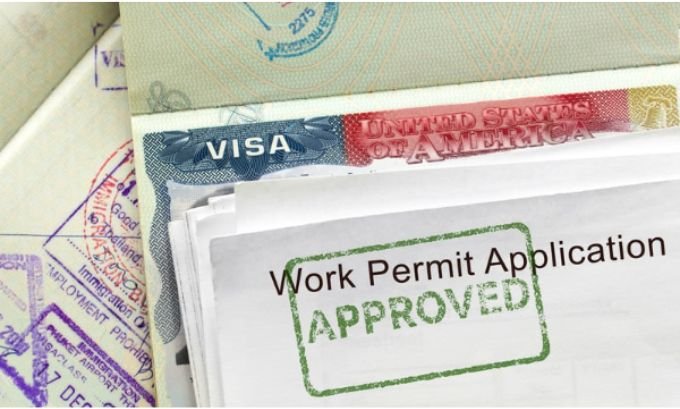Picture this: you’re stepping out of Tokyo Station for the first time. Neon lights buzz above, trains rush beneath, and the air hums with possibility. For many, moving to Japan isn’t just about work—it’s about joining one of the most fascinating cultural and economic ecosystems on the planet. But before the adventure begins, there’s one unavoidable gatekeeper: the working visa in Japan.
It may sound bureaucratic and dry, but in reality, your visa is more than just a stamp in your passport. It’s a ticket to stability, to opportunity, and—if you play it right—to a fulfilling career in a country that is both traditional and rapidly changing.
So how does it all work? What traps should you avoid? And why do some foreigners thrive while others burn out within a year? Let’s break it down.
Table of Contents
What Exactly Is a Working Visa in Japan?
At its simplest, a working visa in Japan is an official permit that allows non-Japanese nationals to live and work legally in the country. Unlike a tourist visa, you can’t just apply and show up. You need a sponsor—usually an employer who commits to hiring you and proving your role fits into one of Japan’s recognized work visa categories.
That’s why job hunting and visa planning go hand in hand. The government doesn’t grant visas “just in case.” It ties them directly to a specific role, company, or in some cases, profession.
Quick Take: A working visa in Japan is a legal permit that lets foreigners work in industries such as IT, finance, healthcare, education, and engineering. Most visas require employer sponsorship, though there are exceptions for highly skilled professionals or certain independent categories.
But visas are only the first step. The real challenge comes after you land the job.
The Hidden Challenges for Foreign Workers
Ask anyone who has worked in Japan for more than a year, and they’ll likely tell you the same thing: the hard part isn’t getting in. The hard part is staying in—and thriving.
Here are three of the biggest challenges every foreign worker should be aware of.
1. Black Companies (ブラック企業)
Few words strike fear into the heart of a worker in Japan like “Black Company.” These are exploitative firms notorious for crushing overtime, harassment, and ignoring labor laws.
Foreigners are especially vulnerable. Why? Because many don’t know the red flags. They’re thrilled just to have landed a job, and they sign contracts without realizing what lurks between the lines.
Signs you might be dealing with a Black Company:
- Vague job descriptions with “other duties as assigned.”
- Unpaid overtime presented as “training” or “company culture.”
- A suspiciously high turnover rate.
- Management that discourages vacation use.
The Japanese Ministry of Health, Labour and Welfare (MHLW) does publish lists of labor law violators. But here’s the catch: many Black Companies never make it to the official list.
Practical Tip: Don’t rely on government lists alone. Before signing, check employer review sites like Openwork, Jobtalk.jp, or CareerConnection.jp. These platforms are goldmines of candid employee reviews and salary transparency.

2. The Seniority-Based Employment System
Imagine this: you’re a high-performing data analyst from the U.S. or Europe, used to raises tied to performance. In Japan, you might wait years for recognition—simply because promotions often depend on age or years of service rather than results.
This seniority-first system is rooted in post-war corporate culture, where loyalty was prized above all else. For many foreigners, it can feel suffocating.
That said, the tide is slowly shifting. Multinational firms in Tokyo, Osaka, and Nagoya increasingly adopt merit-based systems, while younger Japanese workers themselves are questioning the old model. Still, if you land at a traditional domestic firm, expect patience to be part of your job description.
3. Diversity, Equity, and Inclusion (DEI)
Let’s be honest: Japan is still catching up when it comes to DEI. Women, LGBTQ+ professionals, and foreigners often face limited opportunities for advancement. Even stellar performance may not erase the feeling of being an “outsider.”
A Harvard Business Review analysis put it bluntly: non-Japanese workers are often considered outsiders no matter how long they’ve lived or how well they perform.
But again, nuance matters. Global companies based in Japan—think Google, Accenture, or major pharmaceutical firms—are usually far more proactive in DEI. The gap between them and traditional Japanese firms is massive.
Navigating the Japanese Workplace
So, how do you protect yourself and build a rewarding career here? Fortunately, there are tools, institutions, and strategies that can make a huge difference.
Ministry of Health, Labour and Welfare (MHLW)
This is the government body that enforces labor laws. Their website (in English too) publishes:
- Lists of companies penalized for labor law violations.
- Resources for workers facing harassment or unfair treatment.
- Guidance on labor rights in Japan.
Every foreign worker should bookmark the MHLW site. Even if you never use it, knowing it exists empowers you.
Openwork: The Insider’s Lens
Think of Openwork as Japan’s version of Glassdoor—only bigger and often more detailed. Formerly known as Vorkers, it lets employees post anonymous reviews, salary ranges, and notes on workplace culture.
Why it matters for foreigners:
- You’ll see salary transparency in a country where pay is often opaque.
- You’ll spot patterns of overwork before committing.
- You’ll learn how promotions actually happen (or don’t).
Combine Openwork with MHLW data, and you have a powerful filter against falling into the wrong company.
Japan Remotely Academy
This is one of the lesser-known gems for expats. Japan Remotely Academy doesn’t just cover visa paperwork. They help with the whole relocation package:
- Navigating healthcare, housing, and banking.
- Coaching for interviews in Japanese and English.
- Helping you pivot away from exploitative firms to better employers.
In other words, it’s like having a guide who’s already walked the path you’re about to take.
A Real-Life Example
Take Daniel, an IT engineer from Spain. He landed what looked like a solid role at a mid-sized Tokyo firm. The salary was above average, the office seemed sleek, and HR promised “great growth opportunities.”
Six months in, reality hit. His evenings blurred into unpaid overtime. Promotions were vague at best, and feedback came wrapped in politeness that meant nothing concrete. Burnout set in fast.
One evening, Daniel stumbled on Openwork reviews. To his horror, they matched his experience word for word: this was a textbook Black Company. With support from Japan Remotely Academy, he transitioned to a global tech firm in Shibuya—where overtime is capped, pay is transparent, and DEI isn’t just a buzzword.
His story isn’t unique. It’s a reminder: research saves careers.
The Bright Side: Why Work in Japan at All?
It’s not all cautionary tales. Working in Japan offers real rewards:
- Industry opportunities: Tech, healthcare, engineering, and consulting are booming.
- Visa sponsorship: Skilled professionals are actively sought.
- Cultural immersion: Learn Japanese, travel, and experience traditions first-hand.
- Safety and infrastructure: Few places in the world offer such a combination of order, efficiency, and urban energy.
Japan is changing. Slowly, yes, but steadily. For those willing to adapt, it’s an extraordinary place to build both a career and a life.

Where Japan Still Needs Work
Of course, it’s not perfect. Areas where reform lags include:
- Career growth: Traditional firms still cling to seniority systems.
- Work-life balance: Overtime culture remains stubborn.
- DEI practices: Progress is uneven and often cosmetic outside global firms.
- Prejudice: Foreign workers may face subtle exclusion from decision-making or promotions.
The gap between global and traditional firms can feel like two different countries existing side by side.
Quick Comparison: Global vs. Traditional Firms
| Factor | Global Firms in Japan | Traditional Japanese Firms |
|---|---|---|
| Career Growth | Performance-based | Seniority-based |
| Work-Life Balance | Better | Heavy overtime expected |
| DEI Practices | Active programs | Limited or none |
| Salary Transparency | Clear benchmarks | Often opaque |
| Inclusion of Foreigners | High | Low to moderate |
FAQ: Working Visa Japan
Q1: Do I need to speak Japanese?
Not always. IT, finance, and some consulting roles allow English-only work. But Japanese fluency opens more doors.
Q2: How long does it take to get a working visa?
Usually 1–3 months, depending on employer sponsorship and immigration timelines.
Q3: Can I lose my visa if I quit?
Yes. If unemployed for over 3 months, your visa can be revoked unless you find a new sponsor or switch visa types.
Q4: How do I avoid Black Companies?
Use Openwork, check MHLW violation lists, and avoid vague contracts.
Q5: Is Japan improving DEI?
Slowly. Global firms lead the way; domestic firms lag behind.
Final Thoughts: Building a Future in Japan
Securing a working visa in Japan is just the beginning. The real challenge—and opportunity—lies in navigating its workplaces with both caution and curiosity. You’ll face outdated systems, cultural hurdles, and sometimes harsh realities. But with research, resilience, and the right support, you can carve out a career that’s both rewarding and sustainable.
Japan, for all its contradictions, offers something rare: a society that values tradition yet is hungry for global talent. If you walk in prepared—armed with knowledge of Black Companies, the seniority system, and DEI gaps—you won’t just survive. You’ll thrive.
So, ask yourself: is Japan the next chapter in your career story? For many, the answer is a resounding yes.
Planning your trip? Get authentic Japanese snacks and travel essentials at Tokyo Mart before exploring Osaka Japan attractions!
Author Bio
Written by an independent researcher specializing in Japanese labor markets and global mobility. With years of experience guiding expats in Japan, I focus on practical insights that bridge cultural realities with professional aspirations.
References
- Ministry of Health, Labour and Welfare (Japan) – Official labor law publications.
- Openwork.jp – Employee review platform.
- Harvard Business Review – “Outsiders in Japanese Companies.”
- Japan Remotely Academy – Relocation and career support for expats.

